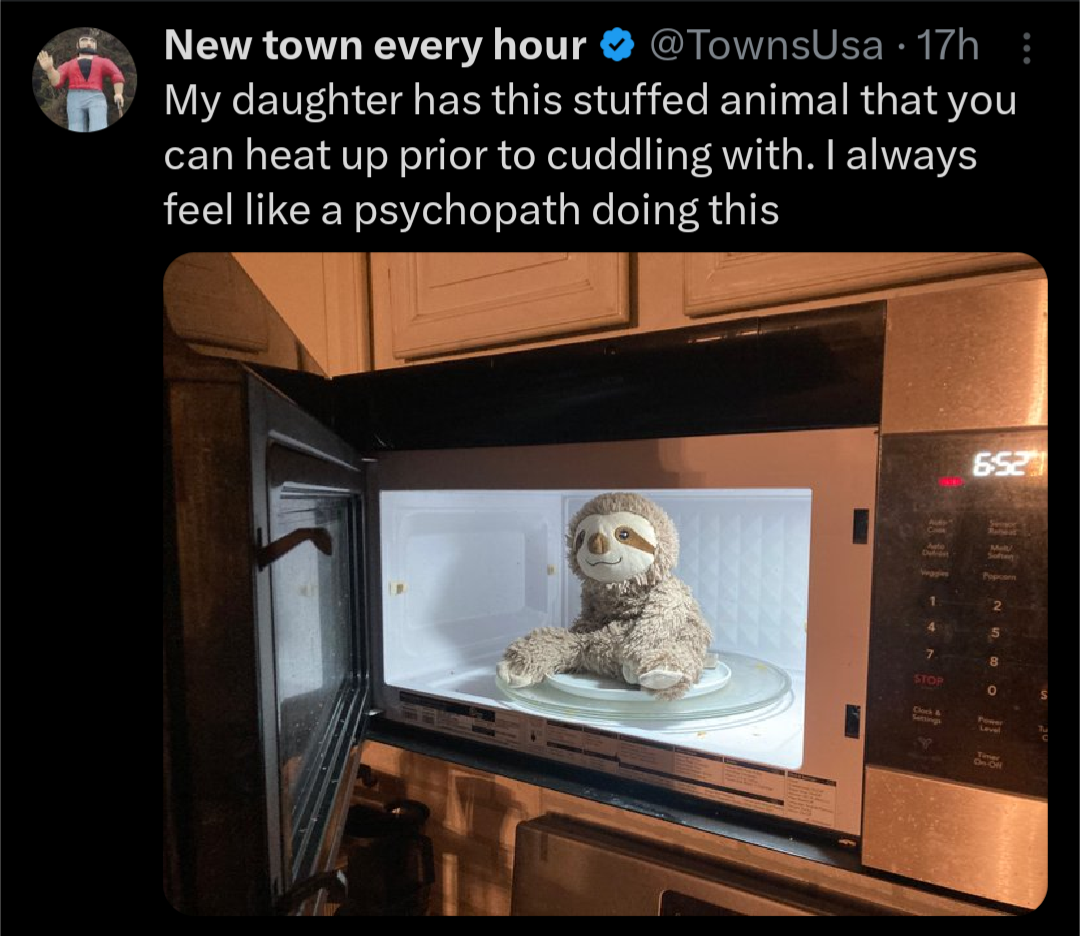this post was submitted on 08 Dec 2024
879 points (99.7% liked)
People Twitter
5396 readers
428 users here now
People tweeting stuff. We allow tweets from anyone.
RULES:
- Mark NSFW content.
- No doxxing people.
- Must be a pic of the tweet or similar. No direct links to the tweet.
- No bullying or international politcs
- Be excellent to each other.
- Provide an archived link to the tweet (or similar) being shown if it's a major figure or a politician.
founded 2 years ago
MODERATORS
you are viewing a single comment's thread
view the rest of the comments
view the rest of the comments

Microwaving dyes and synthetic fabrics doesn't seem safe
Microwaves are tuned to heat water molecules.
They'll pass right through fabric and plastic/synthetics.
The standard technique to heat non-water based things is by using a thin layer of foil (e.g. microwave Popcorn or some instant meals).
It could be a gel too, but there may be a danger if hot leak.
Unless the plushie is on fire when it's given back to the child, I don't see how this could go wrong.
Heating plastics can release VOC. Many plastics will get hot in a microwave. It's recommended not to heat food in plastic containers for this reason
This applies to food, I doubt it's relevant in this scenario, but I am open to being proven wrong.
The point is VoCs and plastic particles move to other surfaces more readily (or to the air) once heated. Kids who play with toys breathe the air around them. The also touch them, and sometimes chew on them. I fail to see the meaningful difference.